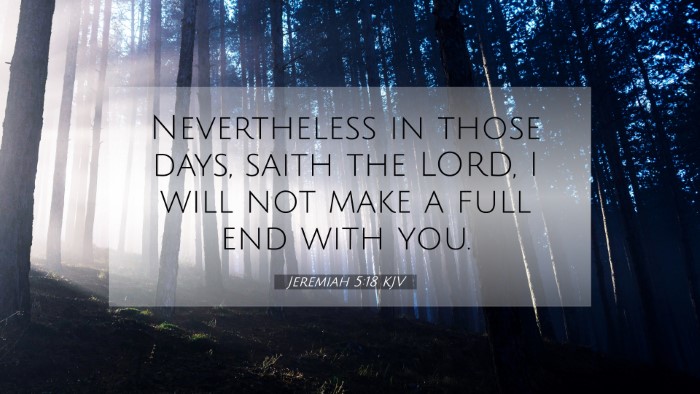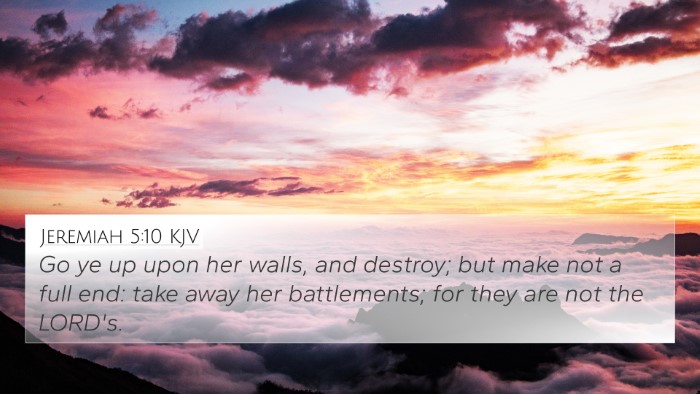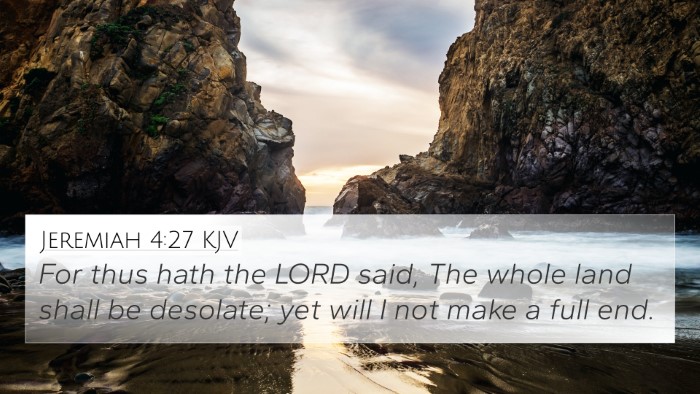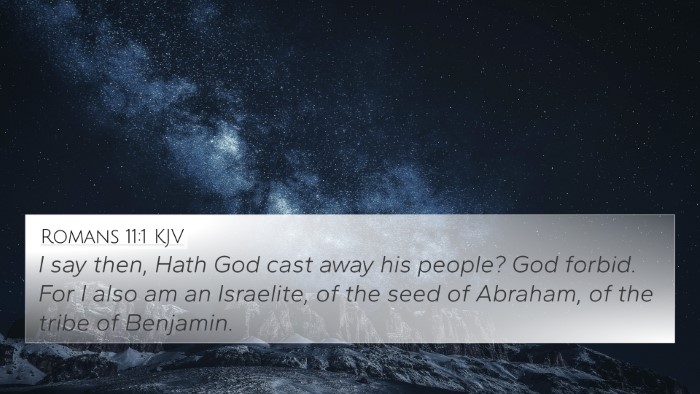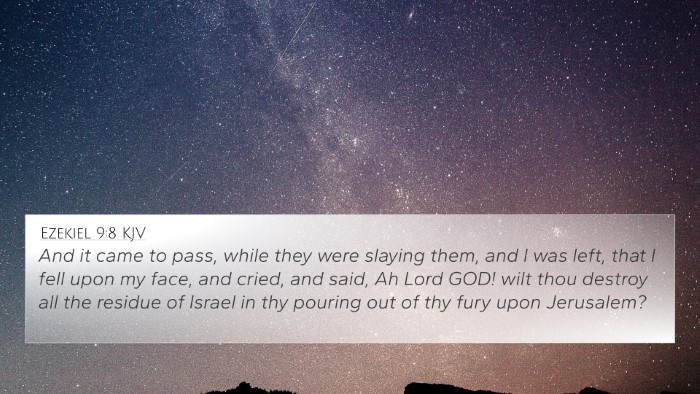Understanding Jeremiah 5:18
Jeremiah 5:18 states: "Nevertheless in those days, saith the LORD, I will not make a full end with you." This verse conveys a profound message of grace and hope amidst judgment.
Summary of Insights from Public Domain Commentaries
Matthew Henry's Commentary
Henry emphasizes that despite the people's sins and the impending judgment, God’s relationship with them is not irrevocably severed. He offers reminders of His mercy, implying that judgment is a means to an end—restoration rather than total destruction.
Albert Barnes' Commentary
Barnes asserts that this declaration of not making a full end signifies God's enduring commitment to His covenant people. Even as they face dire consequences for their actions, there remains a spark of hope for future restoration and blessings.
Adam Clarke's Commentary
Clarke connects this promise to the overarching theme of God's patient and persistent nature, highlighting that divine discipline is aimed at guiding His people back to righteousness. The verse also reflects the nature of God as compassionate and forgiving, ready to restore those who repent.
Key Themes and Doctrinal Insights
- God's Mercy: This verse illustrates God’s mercy to His people, emphasizing that divine judgment is not the end of the narrative.
- Hope for Restoration: The promise implies that even in punishment, there is hope for renewal and restoration.
- Covenantal Relationship: God maintains His covenant despite the people's failings, reinforcing the theme of faithful love.
- The Nature of Divine Justice: Reflects a balanced perspective on justice—condemning sin while providing a pathway to redemption.
Bible Cross References
This verse resonates with several important Biblical themes and can be linked to many other scriptures:
- Isaiah 54:9-10: A promise of mercy after judgment.
- Lamentations 3:22-23: The steadfast love of the Lord and new mercies each day.
- Ezekiel 18:30: A call for repentance and a promise of life.
- Romans 11:1-2: God's faithfulness to Israel amidst disobedience.
- Hosea 14:1-4: A call to return to the Lord for healing and restoration.
- John 3:17: Christ's mission to save, not condemn, reflects God’s nature.
- 2 Peter 3:9: God's patience and desire for all to come to repentance.
- Micah 7:18-19: A declaration of God's forgiveness and restoration.
- Hebrews 12:6: God's discipline as a sign of His love.
- 1 John 1:9: The assurance of forgiveness upon confession.
Conclusion
Jeremiah 5:18 serves as a beacon of hope amidst judgment, illustrating the themes of mercy, restoration, and the enduring nature of God's covenant. By exploring the connections between this verse and others through cross-references, we gain a deeper understanding of scriptural themes that underscore God’s unwavering character. Through these lenses, we comprehend that God seeks relationship and restoration, offering grace even in moments when justice must be served.


